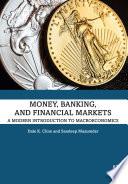Reflections on the Italian and German Experiences
This book provides an essential and critical overview of the most significant issues concerning the domestication of international criminal law, in particular with regard to the implementation of the ICC Statute. It discusses the most recent proposals for reform of the German Völkerstrafgesetzbuch 20 years after its adoption, as well as it introduces the project for an Italian code of international crimes drafted by the Committee of experts established in 2022 by the Ministry of Justice. Following the adoption of the ICC Statute, many States, including Germany with the 'Völkerstrafgesetzbuch', introduced specific legislation to incorporate international criminal law into their domestic legal systems and have been investigating and prosecuting war crimes, crimes against humanity, genocide, and even aggression ever since. 25 years later, however, the process is not completed as other countries, like Italy, are still in the way to adopt provisions on international crimes. This book opens with a broad overview of the different approaches of the domestication of international criminal law, with a specific focus on the German and the Italian systems. After an assessment of the prerequisites for the domestic implementation of international criminal law, also from a constitutional law perspective, each chapter offers an in-depth analysis of a specific issue, such as: the definition of international crimes (genocide and crimes against humanity, war crimes and aggression); the applicability of and exceptions to the general principles of domestic criminal law; the regulation of individual criminal responsibility; the sanctioning process; as well as procedural aspects related to immunities, jurisdiction and prosecutorial discretion. The strong academic perspective of the authors is well complemented by an equally strong practitioner perspective, provided by legal scholars in the highest positions in International and national judicial institutions, resulting in a well-informed and critical appraisal of the most recent developments overall in the international criminal justice system. Domesticating International Criminal Law will be of great interest to legal scholars and students, as well as practitioners with an interest in comparative and international law, international criminal law and international relations.
This book provides an essential and critical overview of the most significant issues concerning the domestication of international criminal law, in particular with regard to the implementation of the ICC Statute.










